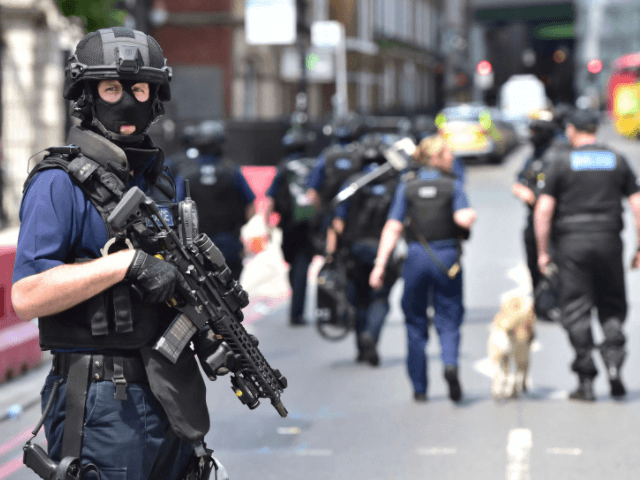British immigration judges handed out lifelong anonymity orders in over 90 per cent of cases involving terrorists and extremists, a report has claimed.
Since 2014, 72 out of 79 cases brought before the Special Immigration Appeals Commission (SIAC) have resulted in judges granting lifelong anonymity to terrorist and extremist offenders.
The list of convicts who will be free from having their names revealed upon release from prison, according to a report from the Mail on Sunday, include radical Islamic hate preachers as well as an alleged associate of the so-called ‘ISIS Beatles’, who were involved in the brutal executions of Western hostages, including American journalists James Foley and Steven Sotloff and aid workers Peter Kassig and Kayla Mueller.
Concerns have been raised over the impact that such orders could have on the public’s safety, who would be left in the dark about potentially dangerous terrorists living within their midst.
Communications Director at The Henry Jackson Society think-tank, Sam Armstrong, said: “The public have a right to know which jihadis are returning from Syria to walk the streets of Britain.”
The Judicial Communications Office said: “Anonymity does not follow as a matter of course. Typically it is granted to protect the appellant and/or their family from the risk of violence or death, and/or to safeguard children.”
In January, one of Britain’s youngest convicted terrorists was deemed “suitable for release” by the Parole Board after serving only five years in prison for devising a plot to behead an Australian policeman.
The terrorist, known only as RXG, was granted lifelong anonymity by a judge in 2019. Though most anonymity orders expire for child offenders upon their 18th birthday, Judge Dame Victoria Sharp argued that revealing his identity could result in “serious harm” to the convicted jihadist.
In February of last year, former Minister for Security Sir John Hayes revealed that 163 convicted terrorists were released early from prison over the past seven years.
Many of the convicted terrorists have already gone back to living in the neighbourhoods they once terrorised. In a notable example, Mohammed Shahjahan was seen in Staffordshire after his release, near his home in Burslem in Stoke, despite previously threatening the town with a bomb attack.
Another convicted terrorist, who plotted an attack on British soldiers, Kazi Islam, was released after serving merely four of his eight-year prison sentence. He has since gone on to move next door to his uncle — who was also convicted of terrorism — in East London.
Last year, the government increased the minimum time served for convicted terrorists to at least two-thirds of a prison sentence, rather than the standard half-term mandated for most criminals. The move followed the Streatham terrorist attack, in which Sudesh Amman stabbed two people in London, days after being released early from prison.
The former director-general of MI5, Jonathan Evans, has called for increasing the penalty for convicted terrorists to actual life sentences, saying: “I think there’s a case for whole life tariffs and from my perspective, it would not be a major problem if they were introduced more widely for very serious terrorist offences.”
Follow Kurt Zindulka on Twitter here @KurtZindulka

COMMENTS
Please let us know if you're having issues with commenting.